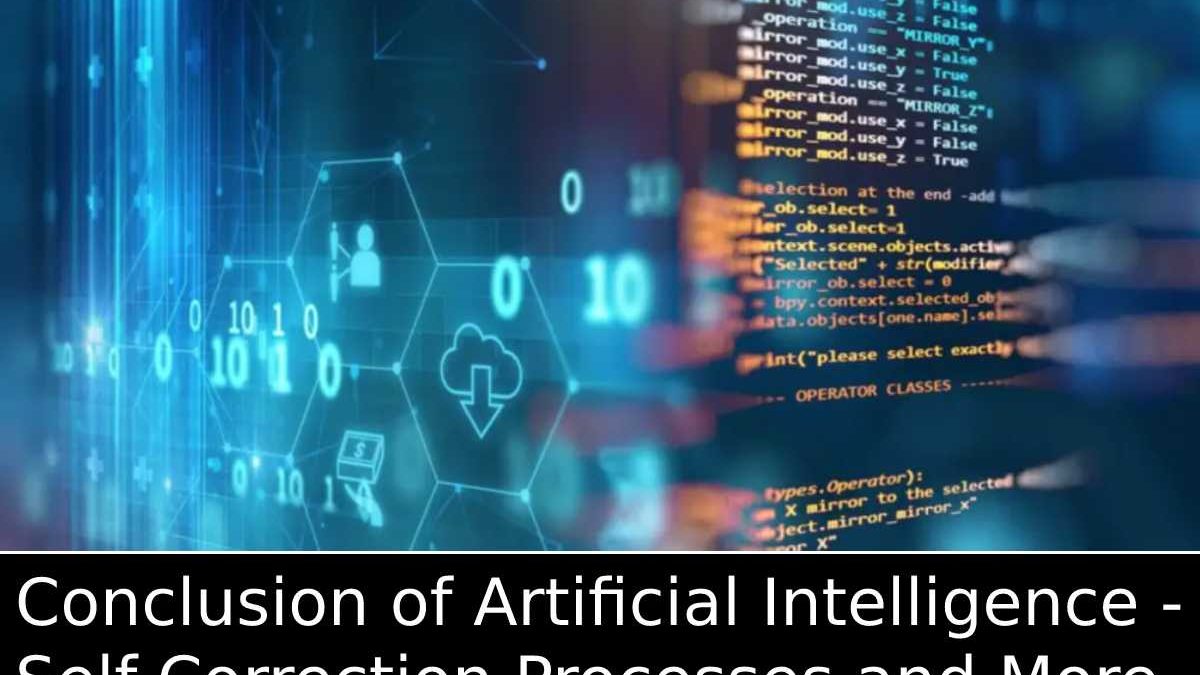Table of Contents
Conclusion of Artificial Intelligence
Conclusion of Artificial Intelligence: AI is at the center of a new enterprise to build computational models of intelligence.
How does AI work?
In place of AI’s accelerated hype, vendors have gone out of their way to promote how their products and services use AI. Often, AI is simply a component of AI, such as machine learning.
The AI requires a foundation of specialized hardware and software to write and train machine learning algorithms. No programming language is synonymous with AI, but some, including Python, R, and Java, are popular.
AI systems generally work by taking large amounts of labeled training data, examining the data for correlations and patterns, and with these patterns to make predictions about future states.
Here this way, a chatbot that receives examples of text chats can learn to produce realistic exchanges with people, or an image recognition tool can learn to identify and describe objects in images by reviewing millions of examples.
The AI programming focuses on three cognitive abilities: learning, reasoning, and self-correction.
Learning processes.:
- This aspect of AI programming focuses on data acquisition and creating rules to turn data into actionable insights.
- In addition, the algorithms provide computing devices with step-by-step instructions on how to complete a specific task.
Reasoning processes:
- However, this aspect of AI programming focuses on choosing the correct algorithm to achieve the desired result.
Self-correction processes:
- However, this aspect of AI programming is designed to continuously fine-tune the algorithms to ensure they provide the most accurate results possible.
- AI enables organizations to make better decisions, improving core business processes by increasing both the speed and accuracy of strategic decision-making processes.
Conclusion
- The central assumption is that intelligence (human or otherwise) can be represented in symbol structures and symbolic operations that can be programmed into a digital computer.
- But, of course, there is much debate about whether an adequately programmed computer would be a mind or simulate one.
- Still, AI researchers need not wait for the conclusion of that debate, nor for the hypothetical computer that could model all of the human intelligence.
- Aspects of intelligent behavior, such as problem-solving, making inferences, and learning and understanding language, have already been codified as computer programs.
- As a result, artificial intelligence can outperform human experts within very narrow domains, such as soybean plant disease identification.
- Now, the big challenge for AI is to find ways to represent common-sense knowledge and experience that allow people to carry out everyday activities, such as having a broad conversation or orienting themselves on a busy street.
- Conventional digital computers can run such programs, or we may need to develop new machines that can support the complexity of human thought.
- The Artificial intelligence is the simulation of human intelligence processes by machines, especially computer systems.
- Specific applications of AI include expert systems, natural language processing, speech Artificial intelligence has enormous potential advantages.
- The key to humans will ensure that the “rise of the robots” does not get out of hand. Here some people also say that artificial intelligence can destroy human civilization if it falls into the wrong hands.

